Betaloc-XR 50 | Tablet | 10 pcs
৳ 40.00
Brand Name: Betaloc-XR Tablet (Extended Release)
Generic: Metoprolol Tartrate
50 mg
Manufacturer: Drug International Ltd.
Unit Price: ৳ 4.00 (10 x 10: ৳ 400.00)
Strip Price: ৳ 40.00
Betaloc-XR 50 mg
Indications
ln the management of hypertension and angina pectoris. Cardiac arrhythmias, especially supraventricular tachyarrhythmias. Adjunct to the treatment of hyperthyroidism. Early intervention with Metoprolol in acute myocardial infarction reduces infarct size and the incidence of ventricular fibrillation. Pain relief may also decrease the need for opiate analgesics. Metoprolol has been shown to reduce mortality when administered to patients with acute myocardial infarction.
Therapeutic Class
Pharmacology
Dosage & Administration
Oral-
Hypertension: Total daily dosage Metoprolol 100-400 mg to be given as a single or twice daily dose. The starting dose is 100 mg (two Metoprolol-50 tablets) per day. This may be increased by 100 mg per day at weekly intervals. lf full control is not achieved using a single daily dose, a b.i.d. regimen should be initiated. Combination therapy with a diuretic or other anti-hypertensive agent may also be considered.
Angina: Usually Metoprolol 50 mg (one Metoprolol-50 tablet) to 100 mg (two Metoprolol-50 tablets) twice or three times daily.
Cardiac arrhythmias: Metoprolol 50 mg (one Metoprolol-50 tablet) b.i.d or t.i.d should usually control the condition. It necessary the dose can be increased up to 300 mg per day in divided doses. Following the treatment of an acute arrhythmia with Metoprolol injection, continuation therapy with Metoprolol tablets should be initiated 4-6 hours later. The initial oral dose should not exceed 50 mg t.i.d.
Hyperthyroidism: Metoprolol 50 mg (one Metoprolol-50 tablet) four times a day.The dose should be reduced as the euthyroid state is achieved.
Myocardial infarction: Orally, therapy should commence 15 minutes after the last injection with 50 mg every 6 hours for 48 hours. Patients who fail to tolerate the full intravenous dose should be given half the suggested oral dose. Maintenance – The usual maintenance dose is 200 mg daily given in divided doses. Elderly’ There are no special dosage requirements in otherwise healthy elderly patients. Signidcant hepatic dysfunction: A reduction in dosage may be necessary.
Injection-
Arrhythmias: By intravenous injection, up to 5 mg at a rate of 1-2 mg/minute, repeated after 5 minutes if necessary, total dose 10-15 mg.
In surgery: By slow intravenous injection 2-4 mg at induction or to control arrhythmias developing during anaesthesia; 2 mg doses may be repeated to a maximum of 10 mg.
Myocardial Infarction: Early intervention within 12 hours of infarction, by intravenous injection 5 mg every 2 minutes to a maximum of 15 mg, followed after 15 minutes by 50 mg by mouth every 6 hours for 48 hours; maintenance 200 mg daily in divided doses.
Impaired Renal Function: Dose adjustment is not needed in patients with impaired renal function.
Impaired Hepatic Function: Dose adjustment is not normally needed in patients suffering from liver cirrhosis because Metoprolol has low protein binding (5-10%). When there are signs of serious impairment of liver function (e.g. shunt-operated patients), a reduction in dose should be considered.
Elderly: Dose adjustment is not needed.
Interaction
Contraindications
Side Effects
Pregnancy & Lactation
Precautions & Warnings
Use in Special Populations
Hepatic Impairment: Reduce dose.
Overdose Effects
Storage Conditions
| Generic Name | Metoprolol Tartrate |
|---|---|
| Size | 50 mg |
Only logged in customers who have purchased this product may leave a review.




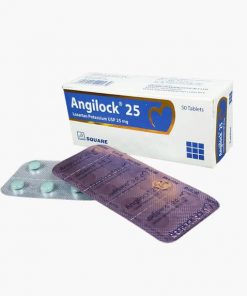
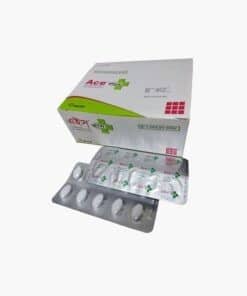
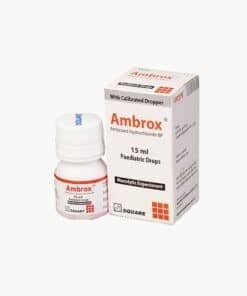
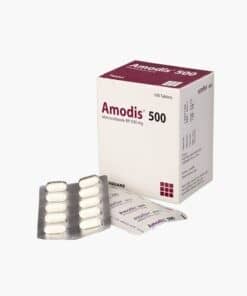
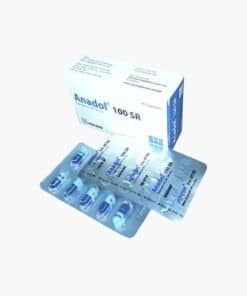

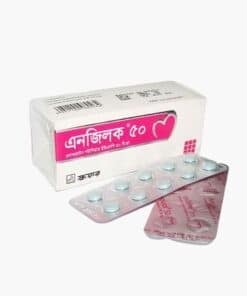
Reviews
There are no reviews yet.